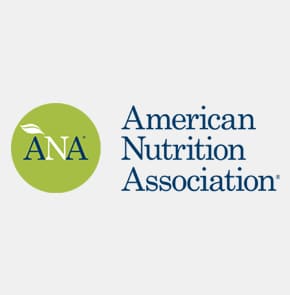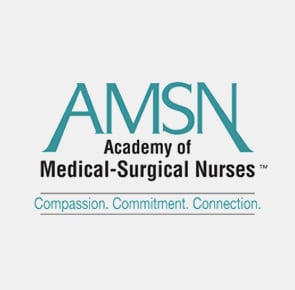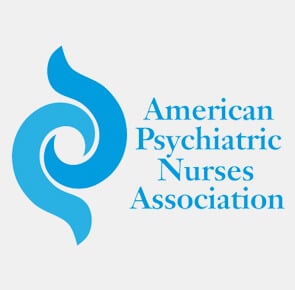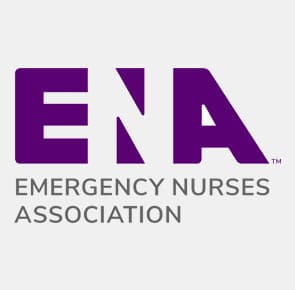Get Matched With Registered Nursing (RN) Programs
What Does an RN Career Entail?
There are few careers more rewarding than that of a registered nurse (RN). There are also few careers more in demand, as a shortage of registered nurses, and other options in the nursing profession, is ongoing so this is a great time to become an RN. In 2016, there were nearly three million nurses in the U.S. According to the U.S. Bureau of Labor Statistics, job growth for registered nurses (RNs) over the next decade is projected to be 15%, which is faster than average. Registered nurses, licensed practical nurse specialists, those in advanced practice nursing, clinnical nurse specialists, and even entry-level nursing graduates can work in many fields, such as non-residential and residential care facilities or even just doctor's private practices, and are in demand worldwide.
After doctors, no one is as well known among medical providers as registered nurses. They are the people patients deal with the most when hospitalized. What an RN does depends on the particular type of healthcare setting, but nurses provide much of the care for patients in such settings. This includes, but is not limited to, dispensing medications; taking vital signs and recognizing abnormalities; taking care of wounds; inserting and removing intravenous catheters; transferring patients from gurneys, beds, and chairs; and aiding in feeding, dressing, and performing basic hygiene tasks for the patient. In addition, an RN carefully documents all aspects of patient care, admits and discharges patients, and constantly assesses and manages the patients under their care. To some degree, they can diagnose and treat patients as well, though an advanced practice registered nurse will have more leeway in that regard.

Components of A Successful Registered Nurse (RN) Career
Those who enter a nursing career and become an RN make a decision to put the needs of their patients before their own. The job is not always easy, but may prove extremely rewarding. Components of a successful registered nursing career include compassion, reliability, practical skills, and the desire to continue learning about this ever-changing profession. Other essentials that the best online nursing programs will teach you about include good communication and observational skills, attention to detail, the ability to keep good records, and, of course, a nursing degree from an accredited nursing program or nursing school. You should keep these goals in mind when you are performing a school search for the perfect online nursing degree. Many types of nursing involve lifting and otherwise handling patients, so registered nurses must also stay in good physical condition.
On top of this, because registered nursing is a profession in which you need an active RN license and, indeed, you'll need an education to get into any level of nursing. In-person and online nursing degrees are available at several levels through a online nursing programs. Students interested in this tye of higher education online nursing program will be able to finish much of your coursework online through accelerated programs or bridge programs, though you'll also need to gain expereince with working professionals at an actual medical facility. Licensure requires firsthand industry experience. Entry-level nurses often complete an Associate Degree in Nursing (ADN). They may be able to become registered nurses (RNs) at this level, or they may choose to earn a Bachelor of Science in Nursing (BSN) degree. The curriculum of a BSN program will prepare students well to pass the NCLEX-RN exam and become an RN.
Compare Popular Online Registered Nursing (RN) Programs
How to Earn an RN Degree
An online associate degree in nursing generally requires about 60 hours, with a bachelor’s degree requiring twice that number. An online master’s degree in nursing will also require about 120 credit hours on top of the previously acquired bachelors.
Typical Registered Nurse Certifications Needed
RNs all require certifications, which are renewable every few years. RNs with specialties must become certified in those areas. For example, a nurse providing special care to pediatric patients must become a certified pediatric nurse. The same holds true for nurses specializing in oncology, HIV/AIDS, nurse anesthetist, and other specialties. Therefore, though all these certifications will not be necessary, you will want to attain any certification needed for your career of choice.
Academic Standards for an online RN Degree

Once you gain admittance to the program, that’s no reason to slack off. Most programs require you to maintain a certain GPA, or risk academic probation and/or suspension. If you do not graduate from your online associate degree in nursing or BSN program with a high enough GPA, you may not have the option of attending a master’s program without retaking those classes in which you failed to excel.
Exam/Experience Needed for a RN Degree
RNs are licensed at the state level. All states use the NCLEX-RN licensing exam, which candidates may take after completing all of their educational requirements. In many states, RNs must undergo fingerprinting and a criminal background check before receiving licensure. An RN must reveal any physical/mental conditions that may affect their ability to perform their job.
Find Your Online Registered Nursing (RN) Program
Online Associates’ Degree
You cannot usually work as an RN with an associate degree in nursing, as most employers want an RN to have completed a bachelor’s degree. However, some hospitals may hire someone with an associate degree as long as they are working towards a bachelor’s. This is generally a condition of employment. You can receive an associate degree at a community college or from an online program, generally with a two-year course of study. With an online associate degree, you can work in other healthcare facilities, including nursing homes, rehabilitation centers, schools, as well as in-home healthcare.
Typical coursework for an online associate’s degree in nursing includes:
- Principles of Nursing Practice
- Pharmacology
- Family Health Concepts
- Health and Illness Concepts
Online Bachelor’s Degree
Anyone planning to become an RN must complete a bachelor’s degree in nursing. This is the entry-level degree requirement to take the tests required to gain RN certification. If you have already attained an online associate degree in nursing, you can transfer some of those courses to your bachelor’s and shorten your time commitment.
Typical coursework for an online bachelor’s degree in nursing includes:
- Microbiology
- Human Anatomy
- Human Physiology
- Statistics
Online Master’s Degree
Graduate school is more expensive than pursuing a four-year degree. An online master’s degree in nursing may cost between $35,000 and $60,000, but these nurses earn among the highest salaries in the field.
Those earning an online master’s degree in nursing focus on either clinical specialties, such as nurse practitioner, or a distinct career path, such as nursing administration. Most master’s degrees in nursing programs may be completed within two to three years. Without an online master’s degree, there is a limit to how far an RN can advance professionally. One advantage of a master’s degree in nursing is that it is often completed online, since the typical candidate is someone already working as a nurse.
Typical online courses of study for a master’s degree in nursing include:
- Resource Management in Healthcare
- Advanced Care of Children and Families
- Nursing Care Pharmacology
- Nursing Administration Theory
Some Concentrations for a Bachelors/Masters In RN
Bachelors and master’s concentrations in nursing run the health gamut, along with administration and education concentrations. Some of these concentrations include:
Online concentrations for a Bachelors/Masters
- Geriatrics
- Pediatrics
- Oncology
- Mental Health
- Neonatal
- Health Policy
- Pain Management
- Critical Care
- Operating Room
- Administration/Supervising
RN Fields of Study Median Salaries
There are literally dozens of fields of study for an RN. Here are some of the most common and in demand:
-
Geriatric Nurse
An aging population makes this field of study especially in demand. Geriatric nurses specialize in caring for old people, and must often provide daily care for their patients. In addition to traditional nursing duties, geriatric nurses may have to transport their charges back and forth to doctor’s offices. They must become familiar with dealing with diseases of the old, including Alzheimer’s and other forms of dementia, cancer, and cardiovascular illnesses. Geriatric nurses work in hospitals, nursing homes, retirement facilities and sometimes care for patients in their homes. On average, a geriatric nurse earns $51,000 annually. -
Neonatal Nurse
Neonatal nurses take care of newborns requiring more than standard care. Many of these babies are seriously ill, requiring intensive care, and make stay in the neonatal unit for weeks or even months. This job requires feeding infants and administering oxygen and medications as directed. The neonatal nurse also works with the parents and other family members, showing them how to care for the baby. Neonatal nurses work in hospitals, and must feel comfortable with the very technical aspects of the job, as complex equipment is needed to keep vulnerable newborns alive. On average, a neonatal nurse earns between $70-80,000 annually. -
Psychiatric Nurse
Psychiatric nurses work with patients dealing with mental health issues, and their families. These nurses provide supervision, counseling, and medication administration, along with monitoring patient progress. Such nurses work in psychiatric hospitals, private clinics, psychiatric wards of standard hospitals, or rehabilitation centers. Psychiatric nurses generally have a Masters of Science in nursing. On average, a psychiatric nurse earns $96,460 annually. -
Forensic Nurse
Forensic nurses deal with victims of violence and abuse. In addition to treating such victims, forensic nurses may testify in legal proceedings against the perpetrators of the trauma. Some forensic nurses work in specialized fields, such as with sexual assault and child or elder abuse victims. Forensic nurses may work in hospitals, psychiatric hospitals, and correctional institutions, as well as in the medical examiner’s or coroner’s offices. When a disaster occurs, forensic nurses are often called to the scene. On average, a forensic nurse earns $81,800 annually.Find Online Registered Nursing (RN) Schools
-
Hospice Nurse
A hospice nurse cares for the dying patient in a hospice setting, geriatric facility, or at home. Their work focuses on palliative care for the terminally ill and making their passage as comfortable as possible, not on trying to cure the patient’s condition. Hospice nurses also work with family members to help them through this difficult time. Certified hospice and palliative nurses’ salaries vary according to region, but average between $60-70,000 annually. -
Medical Surgical Nurse
The largest of nursing specialties, medical surgical nurses work in hospitals. They are responsible for patients from the time each patient arrives on their unit until discharge. Medical surgical nurses deal with literally any kind of illness or injury, so they are familiar with both common and relatively rare ailments. These are the women and men on the frontline of nursing. On average, a medical surgical nurse earns $65,000 annually.
RN Salaries by Occupation
-
Certified Registered Nurse Anesthetist
This is one of the highest paying nursing positions, but it also requires as much as seven years of postsecondary education, including a master’s degree. These nurses collaborate with other healthcare professionals, including surgeons and anesthesiologists, in safely delivering anesthesia to surgical patients. In addition to hospitals, CNRAs may work in private clinics or outpatient facilities. On average, a CRNA earns $160,270 annually, although in larger cities CRNAs may earn well over $200,000 a year. -
Certified Nurse Midwife
Perhaps there is nothing more rewarding than helping to bring a new life into the world, and that is what a certified nurse midwife does. In addition to delivering babies, certified nurse midwives may oversee a pregnant woman’s prenatal care and advise them on family planning. They recognize when a vaginal delivery is not possible or may prove extremely difficult, and work in conjunction with doctors if a C-section is required. The midwife also advises the new mother on baby care, breastfeeding, and childbirth recovery for the first few weeks of the baby’s life. While salary will vary by location, certified nurse midwives usually make $100,000 or more annually, with some earning as much as $132,000. -
Home Health Nurse
These nurses work with patients in their homes. They provide standard and specialized nursing care, often to patients recuperating from surgery and similar procedures. Home health nurses also assist patients with daily living needs, such as bathing and grooming. RN home health nurses can administer intravenous medications and draw samples for lab work. Home health nurses earn an average of $78,807 annually. -
Nurse Practitioner
A nurse practitioner can perform many of the same functions as a doctor, including examining patients, making diagnoses and prescribing medication. Depending on state law, nurse practitioners may not have to work under the supervision of a physician. The demand for nurse practitioners is rising even faster than that of RNs. Nurse practitioners must have a Master’s degree, and some may complete a Doctor of Nursing practice program. On average, nurse practitioners earn about $100,000 annually, although some may earn much more. -
Public Health Nurse
As the name implies, public health nurses work more with the public at large than with individual patients. They may work in county or state health departments, city public health departments, correctional facilities, educational institutions, or with organizations such as the Red Cross. Their jobs involve putting programs in place to treat public health issues, such as STDs, substance abuse, obesity, and the like and they usually work with underserved populations. The average public health nurse earns $55,000 annually.
Annual Salary by Occupation (Range)
| Occupations | Entry Level Salary Range | Mid-Career Salary Range | Late Career Salary Range |
|---|---|---|---|
| Certified Registered Nurse Anesthetist | $142,000 | $160,500 | $177,300 |
| Certified Nurse Midwife | $83,100 | $92,000 | $120,300 |
| Home Health Nurse | $60,300 | $64,000 | $65,600 |
| Nurse Practitioner | $90,800 | $101,300 | $108,800 |
| Psychiatric Nurse | $58,000 | $67,300 | $74,400 |
| Public Health Nurse | $50,700 | $57,300 | $62,800 |
| Registered Nurse | $56,500 | $67,200 | $72,900 |
Important Questions to Ask (FAQ)
How long does it take to earn a Registered Nurse bachelor's degree online?
Students can earn a degree in nursing (ADN or BSN degree) online in the same amount of time that they can usually complete a traditionally earned degree. That can mean four years or less, but if they are taking classes part-time it may take up to six or even eight years to earn a degree.
How much does an online RN bachelor’s degree cost?
Much depends on the student’s course of study. A student may earn their online associate’s degree at a community college, which is less expensive than a four-year college or university, and complete their BSN at a four-year school. Online schools are somewhat less expensive than in-person classes because room and board is not a consideration.
Also, when attending a brick-and-mortar university, there are large discrepancies in the amount they cost. These differences stem mostly from whether or not the schools are public or private. Private schools are usually more expensive than public schools. Also, if you choose to attend classes on campus at a public school, the price may vary if you are from out-of-state rather than a resident of the state in which the school is located.
These are all things to consider. Keeping that in mind, a degree that will allow you to become a registered nurse may range between $30,000 and $100,000, depending on the student’s choice of schools.
Does the school have the major(s) you’re considering?
Not every institution will have nursing degree programs that will provide access to a registered nurse's RN license. Maintaining nursing schools and RN programs is an expensive prospect for any university. Therefore, you need to make sure you thoroughly check the course catalog, or call the admissions department, and make sure that they have an actual RN degree, not just a few basic healthcare courses.
How many students graduate “on time,” in four years?
A school’s graduation rate is very telling, and students should avoid institutions with low four-year graduation rates. The low rate could mean that students do not receive adequate academic support or could indicate that there are affordability or facility issues. The graduation rate is an indicator of the school’s overall quality.
Search Programs Offering Registered Nursing (RN) Majors
What kind of accreditation does the online program hold? How is it regarded in the field?

Software/Technology/Skills Needed
Other than an ability to adapt to new technology, there are no specific technical requirements for nurses. RNs will need to learn to use the latest technology in their fields as they progress through their courses. Since medical technology changes at a fast rate, updating technology skills will be a part of an RN’s job and will fill many of their required continuing education credits each year.
RN Scholarships
-
American Red Cross Jane Delano Student Nurse Scholarship
Amount:$3,000
Deadline: May 1Students entering the nursing field who have volunteered with the American Red Cross may apply for this nursing scholarship, named for a World War I nurse responsible for organizing the Red Cross Nursing Services in that era. Applications are due in May and applicants are notified in July each year. Funds are applied to tuition, books and academic fees, not room and board.
-
Daughters of the American Revolution Nursing Scholarships
Amount:$2,000-$5,000
Deadline: VariousThe DAR offers several annual nursing scholarships. The $2,500 one-time Caroline E. Holt Nursing Scholarship goes to three students in financial need and are either currently enrolled in an accredited school of nursing or have been accepted into such a program. The $2,000 one-time Mildred Nutting Nursing scholarship for two students has similar criteria, but preference is given to students from the Lowell, Massachusetts area. The $2,500 Madeline Pickett (Halbert) Cogswell Nursing Scholarship is awarded to two students who are enrolled or accepted into an accredited school of nursing, and who are members of the DAR or descended from DAR members. The one-time $2,500 District of Columbia is awarded annually to two students in financial need who are residents of the District of Columbia and who enrolled or been accepted in a nursing program at the University of the District of Columbia.
-
Nurses Make a Difference Scholarship
Amount:$1,000
Deadline: August 1This annual $1,000 scholarship is awarded to a student currently enrolled in an undergraduate nursing program at a college or university or a high school student accepted into a school with an undergraduate nursing program. Each applicant must submit an essay based on a topic relating to nursing which is chosen beforehand. Applicants must have a minimum 3.0 GPA for eligibility.
-
Oncology Nursing Foundation Bachelor’s in Nursing Degree Scholarships
Amount:$3,000-$5,000
Deadline: February 1These annual awards, ranging from $3,000 to $5,000, are provided to candidates enrolled in their senior year in an accredited nursing degree program. The scholarship is granted to individuals interested in a career as an oncology nurse to further their education at this level.
-
Tylenol Future Care Scholarship
Amount:$10,000 (10 Awards), $5,000 (30 Awards)
Deadline: June 30Each year, 40 students majoring in the healthcare field will receive this scholarship, which consists of 10 $10,000 non-renewable scholarships and 30 $5,000 non-renewable scholarships. Scholarships are applied to tuition, fees, books, supplies and equipment required for the course load. Undergraduate applicants must have completed at least one year of study at an accredited college or university. The selection committee chooses the winners based on GPA, community involvement and the content of an essay.
Professional RN Organizations
- ANA
- AAMSN
- APNA
- ENA

ANA
American Nursing Association
The ANA’s membership consists of 4 million nurses nationwide. ANA members also become automatic members of their state’s nursing association. Members may take advantage of free webinars and professional development resources, discounts on continuing education, certification and publications, and networking with fellow nurses.

AAMSN
American Academy of Medical-Surgical Nurses
AAMSN membership is geared toward advocating for this nursing specialty, and professional and personal development. Membership includes a subscription to the MEDSURG Nursing journal, career guidance, certification study aids, a mentoring program, and networking opportunities. Educational events are held regularly at local chapters.

APNA
American Psychiatric Nurses Association
APNA represents more than 12,000 psychiatric nurses who work in a variety of settings. Such settings include private practice, clinical practice, military, outpatient, forensic, research, and education. APNA collaborates with ANA in the development and publication of psychiatric/mental health nursing standards for RN and advanced practice. APNA offers online continuing education courses and eBooks for members.

ENA
Emergency Nurses Association
ENA members include approximately 42,000 emergency nurses worldwide. The organization provides an array of emergency nursing educational opportunities, including trauma nursing core courses and many continuing education courses, along with research grants and academic scholarships. Members also receive regular updates on proposed government regulations affecting emergency nursing.
Choosing an AccreditedOnline College
Accreditation is vital when choosing a college. Look for schools with regional accreditation based on their location. The six regional accreditation agencies are The Middle States Association of Colleges and Schools, The New England Association of Schools and Colleges, The North Central Association of Schools and Colleges, The Northwest Association of Schools and Colleges, The Southern Association of Schools and Colleges, and The Western Association of Schools and Colleges.
When majoring in nursing, you want a school accredited by either the Accreditation Committee for Education in Nursing (ACEN), which accredits nursing programs at all levels, or the Commission on Collegiate Nursing Education (CCNE), which only accredits bachelor’s and master’s degree nursing programs. If planning to become a nurse midwife, look for a program accredited by the American College of Nurse Midwives Division of Accreditation (ACNM). For those seeking a career as a certified registered nurse anesthetist, look for accreditation by the Council on Accreditation of Nurse Anesthesia Educational Programs (COA).
In some situations, a state board of nursing may approve a school that is not accredited by the ACEN or CCNE. It is not a good idea to attend such a school if you want to pursue additional nursing education, such as a bachelor’s or master’s degree, because accredited schools will not accept your credentials.
Online vs On-Campus vs Hybrid
In the past, students could not complete a nursing degree online, because there is too much “hands-on” experience needed in the field. However, many students can take the bulk of their nursing courses online and obtain clinical experience at the local level. How this translates to the individual student depends on the online school.
Frequently Asked Questions
I can be an RN with an associate degree or a bachelor’s; which is better?
The truth is that both of these degree options can get you into a lucrative career that is fulfilling. However, which one you choose will likely depend on your needs or the amount of time you have available. Do you need to get into the workforce fast? You might want to earn an associate degree so you can get started right away. You can always go back to school and finish a bachelor’s later. However, if you already planned to earn a bachelor’s degree, earning a BSN can mean that you will be more competitive when you apply for jobs, and it can mean that you are likely to make more than your counterparts with only associate degrees. So, while an associate degree can get you a job, a BSN may get you more in the long run.
What is the NCLEX exam?
Whether you choose to earn an associate or bachelor’s degree, you will have to pass the NCLEX-RN exam in order to work as a nurse within the United States. There is also an NCLEX-PN exam, but this is for those who wish to work as practical or vocational nurses. The exam is meant to assess the knowledge and abilities of those who wish to work as entry-level nurses, and the courses you take in the course of completing your degree mainly exist to prepare you for this test. The test will gauge how well you can use critical thinking and nursing knowledge to make judgements about patient situations. Based on the first try pass rate of 87% in 2017, you can assume that, while the test is by no means easy, your courses should prepare you well. The test is completed through computer adaptive testing (CAT), meaning that the more questions you answer correctly, the more difficult the questions you receive become. However, the worth of these questions is weighted, and you may receive as little as 75 questions or up to 265, depending on how you do throughout.
Does the College Have Post-Graduate Job Placement Help & Assistance?
Nursing graduates should not have problems finding a job, but a college with a solid career placement program for graduates is a big plus and an issue potential students should investigate. You should look for a program that has a variety of services, such as resume writing assistance, interview practice, networking meetups, job fairs, and alumni cooperation.
Why You Need to Consider the Overall National Rankings of the College and The Effects on Your Career or Salary
Though ranking isn’t everything, and you don’t need to move across the country or pay a ridiculous amount to attend the best ranked nursing school, you may want to consider the effect rankings can have on your future career and salary. Employers will know if the school you attended has a well-known nursing program. If they haven’t heard of it, they will look at it’s rankings in relation to schools they do know. Rankings consider graduation rates, faculty experience, positions of graduates, and a number of other features.
sources:
- https://www.redcross.org/about-us/who-we-are/nursing-health/opportunities-for-nursing-students.html
- http://www.onsfoundation.org/funding-nurses/education/bachelors-scholarships
- https://www.cascadehealthcaresolutions.com/Chs_Scholarship_a/364.htm
- https://www.dar.org/national-society/scholarships/nursing-medical-scholarships
- https://www.nursingworld.org/
- https://www.ena.org/
- https://www.apna.org/i4a/pages/index.cfm?pageid=3293
- https://www.amsn.org/
- https://www.bls.gov/ooh/healthcare/registered-nurses.htm
- https://www.bestmasterofscienceinnursing.com/top-5-nursing-concentrations/
- https://nurse.org/articles/15-highest-paying-nursing-careers/
- https://nursejournal.org/mental-health-nursing/mental-health-nursing-careers-salary-outlook/
- https://www.bls.gov/ooh/healthcare/registered-nurses.htm#tab-4
- https://nurse.org/resources/certified-nurse-midwife/
- https://www.allnursingschools.com/articles/nursing-school-accreditation/
